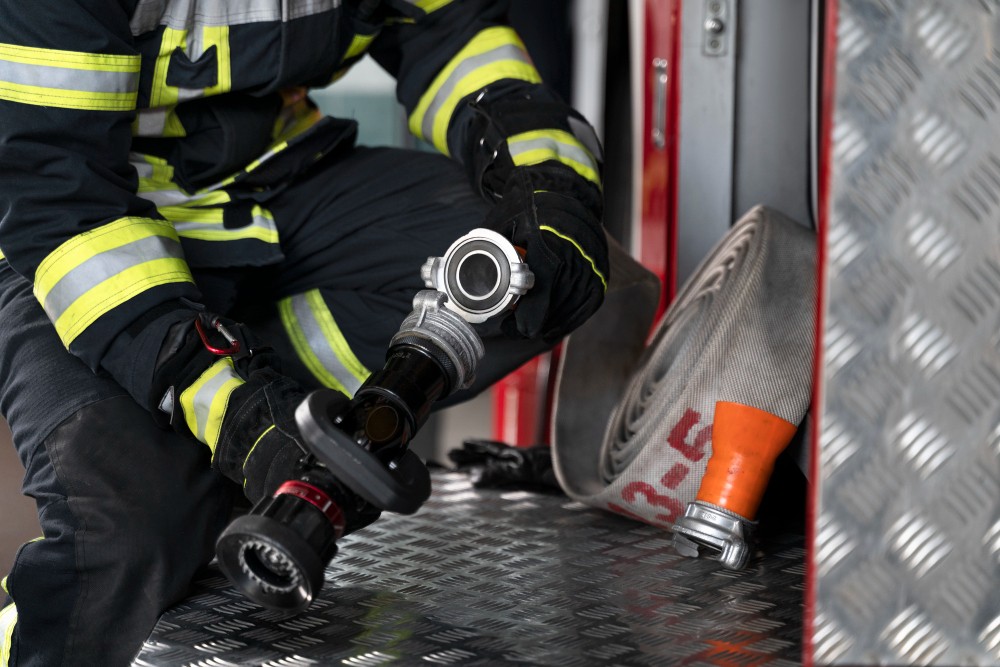Marine fire suppression systems are specialized firefighting operations designed not only to detect fires but control and extinguish them onboard a boat or other type of marine vessel.
These systems are critical when it comes to protecting marine vessels and their occupants, including crew and passengers, from fire hazards. They are located throughout the vessel. Marine fire suppression systems are a complex network made up of sensors to detect fires, fire alarms, and extinguishing agents like gas, foam, or water.
Marine fire suppression systems have to stay current with regulations and guidelines from authoritative entities like the US Coast Guard. These regulations are in place to make sure marine vessels have reliable, effective firefighting systems to protect vessels, cargo, and occupants in the event of a fire.
Here are some signs your marine fire suppression system needs to be serviced.
1. Visible Damage
If you have had a small kitchen fire or any other fire incident, your kitchen fire systems need to be inspected. If there’s visible damage to your marine fire protection system, it needs to be serviced as soon as possible.
You might discover damage to any component of the system, including:
- Pipes
- Spray booths
- Sensors
- Nozzles
- Extinguishers
Look for signs of corrosion or other evidence of damage, and contact a service provider immediately.
2. Equipment Is Expired or Outdated
Any changes to regulations and guidelines are designed to protect you and your boat. Sometimes, regulation changes mean your current system or equipment is considered outdated.
Other times, your equipment simply expires due to age. Check expiration dates on your fire extinguishers and other fire suppression components.
If you have expired or outdated equipment, there’s an increased risk of your fire suppression system not functioning when needed. Prioritize replacing this equipment for your health and safety.
3. Warning Signals
Some fire suppression systems have warning signs to indicate a potential problem with the system, including flashing lights or occasional beeping sounds.
If you notice any of these, don’t ignore them. Get your equipment evaluated and serviced as soon as you can.
4. Blocked Pipes or Nozzles
Check the pipes and nozzles of your fire suppression system regularly to ensure they’re free of any obstructions, such as dust or debris.
Blockages within the system can hinder and slow down the extinguishing process, enhancing the risk of fire hazards.
5. You’ve Changed the Configuration of Your Boat
Any changes or modifications to your boat merit a maintenance check of your marine fire suppression equipment.
For example, if you add new equipment to your engine room, a professional maintenance check of your marine fire protection equipment can ensure your system still meets the required safety standards.
6. You’ve Had an Irregular Maintenance Schedule
Your marine fire protection equipment should be serviced and checked on a routine basis.
If you’ve had an irregular maintenance schedule, you increase the risk of a system failure, which can put you and your vessel in great danger if there’s ever a fire onboard.
Manufacturers of fire suppression systems publicize recommended maintenance schedules. Your local maintenance technician may also recommend a schedule. Follow these recommendations closely and keep your maintenance checks routine.
Professional Marine Fire Suppression System Maintenance
You shouldn’t mess with fire or take the maintenance of your marine fire protection system lightly. Always have maintenance checks performed by professionals who know how to spot signs of damage or corrosion, who are up-to-date on authoritative safety regulations, and who can properly install and evaluate your equipment. For professional fire suppression system maintenance, contact Preventive Fire at one of our many Florida locations.

